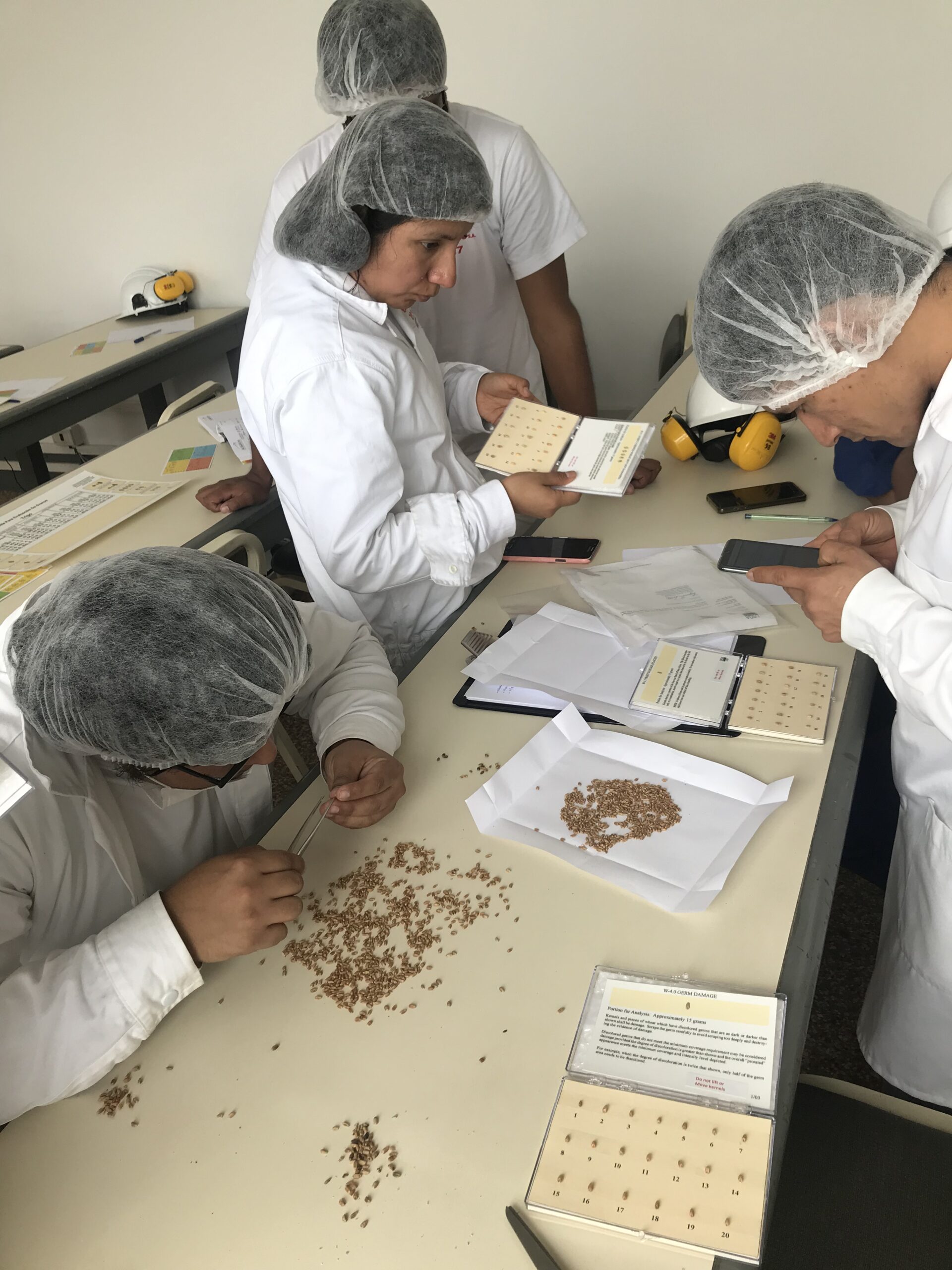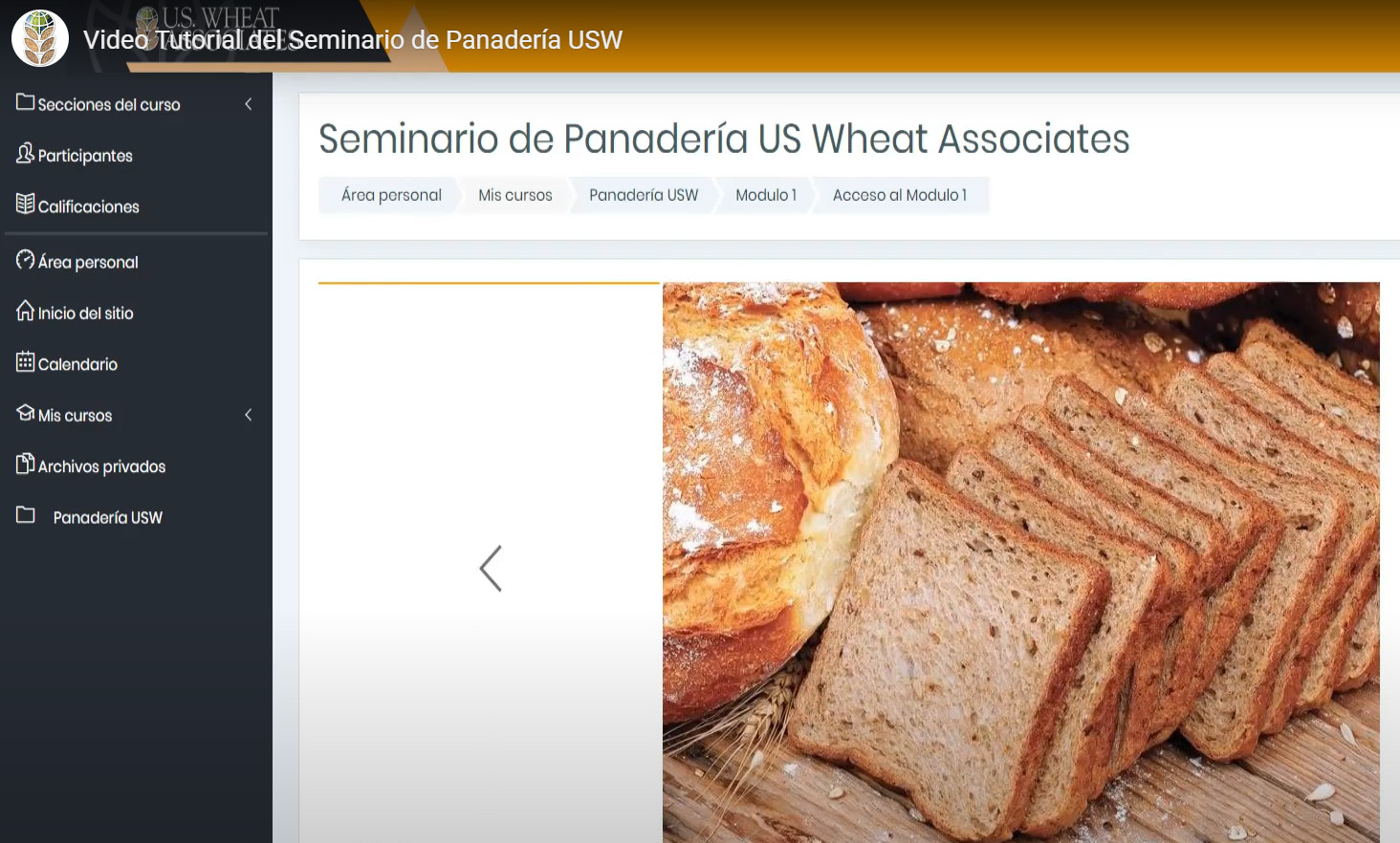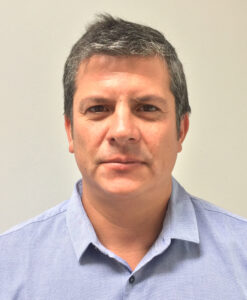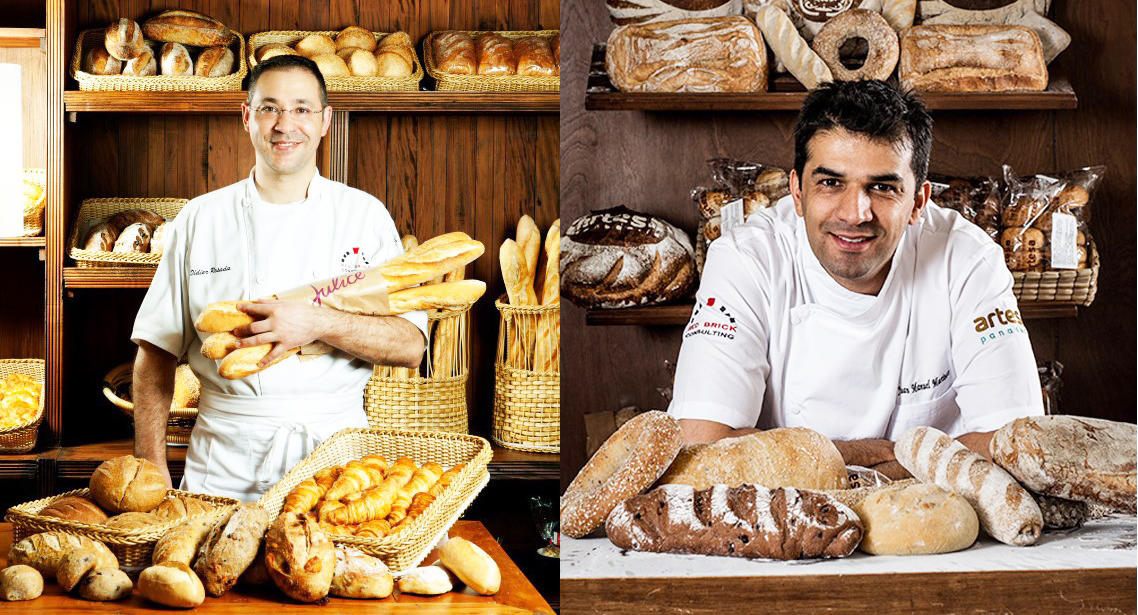An online training series developed by U.S. Wheat Associates (USW) in the early days of the COVID pandemic continues to have success in its effort to educate South American bakers and millers about the value and quality of U.S. wheat.
Specifically, the Online Baking Certification program promotes baking methods and processes that highlight all six U.S. wheat classes. What is significant about the program is that it’s able to reach a large number of bakery and milling staff who otherwise would not be able to take part in educational workshops. The virtual format allows participants to study at their own pace before testing through a handful of modules to earn certification.
Funded by the Agricultural Trade Promotion Program (ATP) – a USDA Foreign Agricultural Service (FAS) program created in 2018 to help U.S. agricultural exporters enhance their work in international markets and mitigate other obstacles to trade – USW’s online trainings have made great strides toward reaching the goal of boosting awareness of U.S. wheat.
Bakers and millers in Colombia, Peru, Chile, Ecuador, Bolivia and Brazil have been getting a thorough introduction to U.S. wheat and are learning how they can utilize it to improve the quality of breads and other baked goods.
The goal for U.S. wheat is ambitious yet simple: Sharing ways to improve baked products made with U.S. wheat could result in increased consumption in South America, which could lead to more customers for South America’s bakeries.
It could also potentially lead to a greater demand for U.S. wheat.
Putting U.S. Wheat ‘Top of Mind’

USW’s Online Baking Certification program builds upon an ongoing effort to create awareness of U.S. wheat’s value and quality in South America. Pictured here is an in-person workshop conducted in USW’s Santiago office in 2019, prior to the COVID pandemic.
Miguel Galdos, USW’s regional director in South America, says the goal of the Online Baking Certification program is to create better awareness of U.S. wheat.
“We want U.S. wheat to be top of mind for more bakers in the region, as well as for the technical staff at the milling companies,” he said. “We want to place a higher emphasis on reaching bakers
and technical people to perhaps give them a voice when it comes to wheat purchasing decisions.”
The fact that both bakers and milling staff are registering for the online course, too, is a sign that many in the industry want to take advantage of the opportunity to get experience working with U.S. wheat.
USW, the wheat industry’s export market development organization, works with wheat buyers, millers, bakers, food processors and government officials in more than 100 countries to promote the reliability and value of the six U.S. wheat classes. The new emphasis on creating awareness in South America and educate the people who work directly with wheat and wheat flour inside of bakeries is strategic.
Creating awareness – putting U.S. wheat top of mind of bakers – opens all kinds of opportunities.
“The key is that once they learn one aspect of U.S. wheat’s quality, they want to see what else there is to learn,” explained Galdos. “In this program, they must test out of one module to be able to move on to the next. Before earning the certification, they must complete a two-day practical course in person. Soon, after moving through the program, they are an expert on our product. At that point, U.S. wheat has developed a customer.”
Virtual Training has Become Commonplace

The Online Baking Certification program includes six different modules that allow bakers and milling staff to progress at their own pace. Participants must pass one module to move on to the next, assuring they are exposed to all of U.S. wheat’s many positive attributes.
Launched in October 2020 as an alternative to in-person training workshops during the height of the COVID pandemic, the Online Baking Certification program has grown rapidly. USW recently added a Portuguese version to the original Spanish version to attract more Brazilian participation. USW also has plans to add a master-level course in the near-future.
The current program has registered nearly 5,500 students in two years. Thanks to a partnership between U.S, Wheat Associates, the Brazilian Wheat Industry Association and the Brazilian Bakery and Confectionery Industry Association, further growth is expected.
The six South American countries targeted by USW are the six that purchase U.S. wheat.
“The biggest wheat buyer in Colombia has had 15 staff members go through the whole program and earn certification,” said Galdos. “Chile has been another active participant, so we are seeing interest from a good portion of the region. Brazil is promising. We have met with the millers and bakers’ associations and U.S. Wheat Associates is going to be recognized by those associations at an upcoming event.”
The birth of the program came by necessity after in-person trainings and workshops were eliminated because of COVID. By March 2020, USW’s staff in Santiago, Chile, were putting together educational materials to complete the online bakery course – courses featuring baking theory, video instruction and assessment platforms were assembled. USW Baking Consultant Didier Rosada played a key role in the production of baking videos for the modules, which were finished in May 2020 and then sent to selected baking staff around the region for testing.
Opportunity for a Competitive Edge
Those who have completed USW’s Online Baking Certification are reporting they gained greater knowledge of traditional baking methods that work well with U.S. wheat.

Miguel Galdos, USW regional director in South America
Galdos emphasized that the online courses provide U.S. wheat with an advantage over competing wheat growing and exporting countries.
One example is the value of U.S. hard red winter wheat compared to Canadian wheat.
“One thing we stress to the bakers in South America is that many of the products they are baking do not require Canadian wheat that is higher in protein but more expensive,” Galdos said. “U.S. hard red winter wheat is a better option, and the content in the online baking courses teach them why. We show them how to bake with it. The problem is that the bakers are not trained. We want more bakers in the region exposed to the value and quality of U.S. wheat and how using it can benefit their products and their businesses.”
Along with putting U.S. wheat top of mind for South American bakers, Galdos pointed out a valuable additional benefit to USW’s online baking program.
“Through this certification process we are working with bakeries, collaborating with millers, collaborating with the people who either are or could be buying and using U.S. wheat,” he said. “We are educating them and creating awareness for U.S. wheat. At the same time, we are building relationships.”


